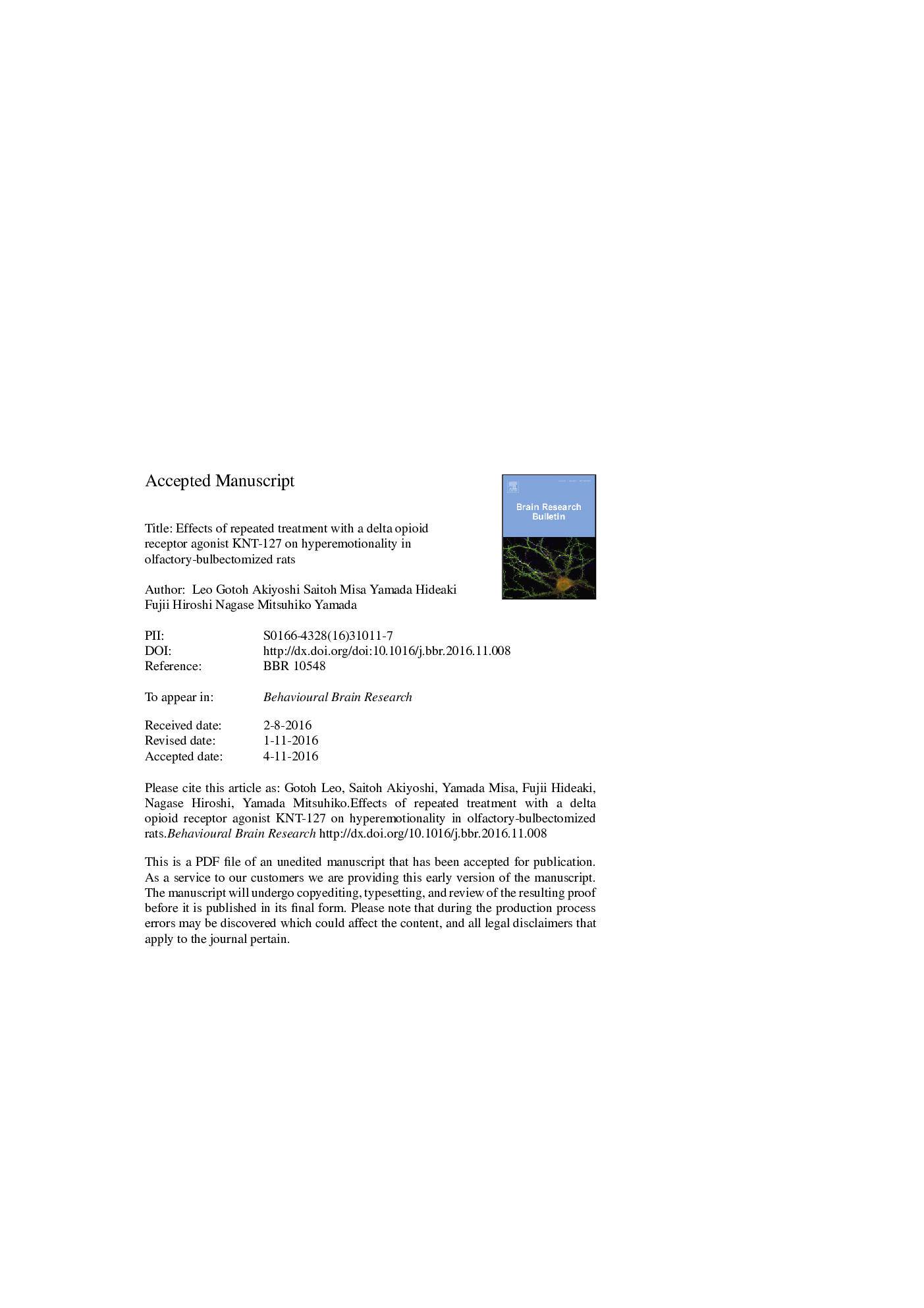| Article ID | Journal | Published Year | Pages | File Type |
|---|---|---|---|---|
| 5735636 | Behavioural Brain Research | 2017 | 13 Pages |
Abstract
We previously demonstrated that a single treatment of a non-peptidic delta opioid receptor agonist, KNT-127, has an antidepressant-like effect in rodents in the forced swim test. Here we evaluated the effect of repeated administration of the potential antidepressant KNT-127 in an olfactory-bulbectomized (OBX) rat model. Male Wistar rats (8-12 weeks old) underwent olfactory bulbectomy. From 14 days after surgery each was weighed and administered either KNT-127 (3 mg kgâ1/day), the selective serotonin reuptake inhibitor (SSRI) fluoxetine (10 mg kgâ1/day), or vehicle, daily for 14 days. Hyperemotionality was measured on days 3, 5, 7, 10, and 14. Repeated administration of KNT-127 significantly decreased total and individual hyperemotionality scores (attack, startle, struggle and fight) over the entire period. Conversely, fluoxetine did not show any significant effect on days 3, 5, 7, or 14 but significantly reduced the total score on day 10. The inhibitory effects of KNT-127 were greater than those of fluoxetine. The KNT-127 and control groups both gained weight, while the fluoxetine group lost weight. Our results suggest that KNT-127 is a potential lead compound for antidepressant therapy, with high efficacy, a relatively rapid onset of therapeutic effect, and without the possible adverse effects of weight loss caused by SSRIs.
Keywords
Related Topics
Life Sciences
Neuroscience
Behavioral Neuroscience
Authors
Leo Gotoh, Akiyoshi Saitoh, Misa Yamada, Hideaki Fujii, Hiroshi Nagase, Mitsuhiko Yamada,
